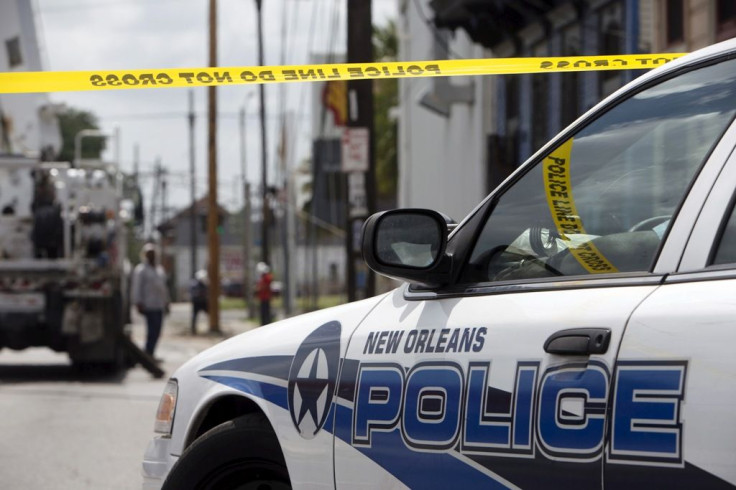Who Is Chyna Gibson? After Transgender Woman Is Killed, Police Find Possible Suspects

New Orleans investigators have identified and located two persons of interest in the case of a 31-year-old transgender performer who was murdered Saturday. Chyna Gibson was one of two transgender women murdered within 48 hours in the city last week, although NOPD officials said the cases do not appear to be related.
Gibson's body was found with 10 bullet wounds and lying between two vehicles in a parking lot, according to local reports. Gibson's family told local news outlets she toured the country as a drag show performer, sometimes under the name Chyna Doll Dupree, and had returned home to her native New Orleans from her new home in Sacramento, California, for Mardi Gras.
On Thursday, the NOPD distributed pictures of two men they said were wanted for questioning in connection with the murder, stopping short of naming the men as suspects. A day later, the NOPD tweeted that officers had identified and located the two men.
#NOPD has identified and located two persons of interest in the death of Chyna Gibson. The Investigation is ongoing.https://t.co/4YzlmoS257
— NOPD (@NOPDNews) March 3, 2017
On Thursday, family and friends gathered in Louis Armstrong Park to mourn Gibson at a candlelight vigil.
Huge crowd at Louis Armstrong Park holding memorial for #ChynaGibson pic.twitter.com/gvFAxiXWlW
— Matt Sledge (@mgsledge) March 3, 2017
Less than 48 hours after Gibson was killed, the body of another transgender woman, 25-year-old Ciara McElveen, was found on Monday morning with fatal stab wounds. Police said witnesses saw a man driving a vehicle with McElveen in the passenger seat. The witnesses told police the man stopped the car, walked to the trunk and retrieved an object, then stabbed McElveen before pulling her from the car and driving away.
The murder of transgender women of color appears to be on the rise, particularly in Louisiana.
In addition to McElveen and Gibson, Jaquarrius Holland, 18, of Monroe, Louisiana, died from a single gun wound to the head on Feb. 19. All three victims were transgender women of color. Seven transgender women have been murdered so far in the U.S. this year, according to the New York City Anti-Violence Project. The project recorded the murder of 23 transgender and gender nonconforming people in 2016, the highest annual total since the group started tallying homicides against the LGBTQ community in the late 1990s.
© Copyright IBTimes 2025. All rights reserved.






















